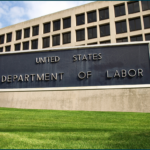On December 1, 2017, the National Labor Relations Board’s (“NLRB” or “Board”) new General Counsel, Peter B. Robb, issued his first G.C. Memorandum forecasting the direction of the NLRB in 2018 and beyond. Therein, the General Counsel rescinded several Obama-era memoranda and signaled the NLRB’s willingness to reexamine, among other things, the standards the NLRB used to analyze joint employment relationships and work-related rules.
On December 14, 2017, the Board followed through on two of the General Counsel’s initiatives by issuing landmark decisions overruling two of its earlier – and from the business community’s perspective, controversial – decisions in Browning-Ferris Industries (“BFI”) and Lutheran Heritage Village-Livonia (“Lutheran Heritage”).
Hy-Brand Industrial Contractors, Ltd. Overturns BFI. Prior to BFI, the NLRB required that an employer have “direct and immediate” control over another employer’s workers’ terms and conditions of employment before concluding the employers jointly employed the workers. In 2015 (during a time when the majority of the NLRB was comprised of Obama-era appointees), the NLRB revised the test to include “indirect control” or the preservation of the authority to control by way of contract or otherwise (and even if control was never exercised) as bases for finding a joint employment relationship existed.
Yesterday, the NLRB reversed its decision in BFI, holding that two or more entities will be deemed joint employers where there is proof that an employer exercised control over the terms and conditions of another employer’s employees, the employer has exercised that control directly and immediately, and the employer has not done so in a limited or routine manner.
The Boeing Co. Overturns Lutheran Village. In Lutheran Heritage, the NLRB set forth the standard used to determine whether facially neutral work-related rules unlawfully interfere with employees in their exercise of statutorily-protected rights under the National Labor Relations Act (“NLRA”) (e.g., discussions with others regarding work-related terms and conditions). Under the Lutheran Heritage analysis, employers violated the NLRA by maintaining work-related rules that restricted activities in a way that could be “reasonably construed” by employees to prohibit the exercise of rights afforded by the NLRA. Facially neutral rules were oftentimes struck down under the Lutheran Heritage analysis, even in instances where the rules had never been enforced to the detriment of employees. That is, under the old regime, mere maintenance of an unlawful rule was prohibited and invited Board scrutiny. The Obama-era Board was very aggressive in ferreting out what it believed to be “maintenance” violations.
Yesterday, in The Boeing Co., the NLRB overturned its Lutheran Village decision in favor of what it believes is a more balanced approach. The Boeing Co. test for determining the lawfulness of a facially neutral work-related rule calls for the Board to determine (1) the nature and extent of the impact a rule has on NLRA-protected rights, and (2) whether there exists legitimate justifications for implementation of the rule. Going forward, the NLRB’s revised test in The Boeing Co. should afford relief for employers looking to implement and maintain facially neutral work-related rules.
If you have questions about how these labor law developments impact your business, please contact any member of the KDDK Labor and Employment Law Practice Team.





